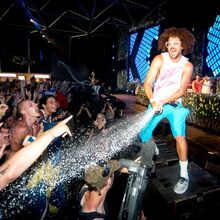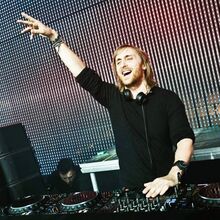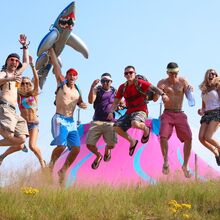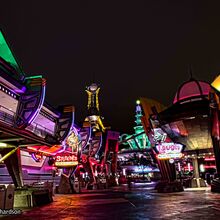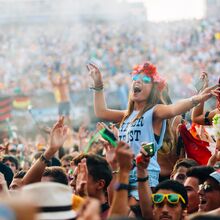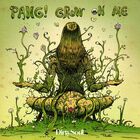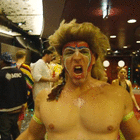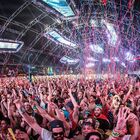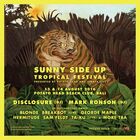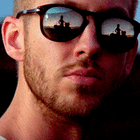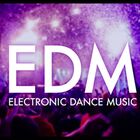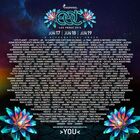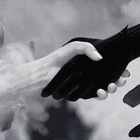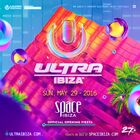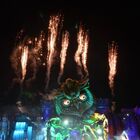For the next two weekends, the town of Boom, Belgium will be the window to the dance world, as fans unite for Tomorrowland. The world-renowned music festival is celebrating 10 years of success by doubling up and going two weekends instead of one; meaning twice the number of exhilarating sets from artists, and twice the FOMO* for those stuck at home.
Once Upon a Time, in a Tomorrowland Far Far Away
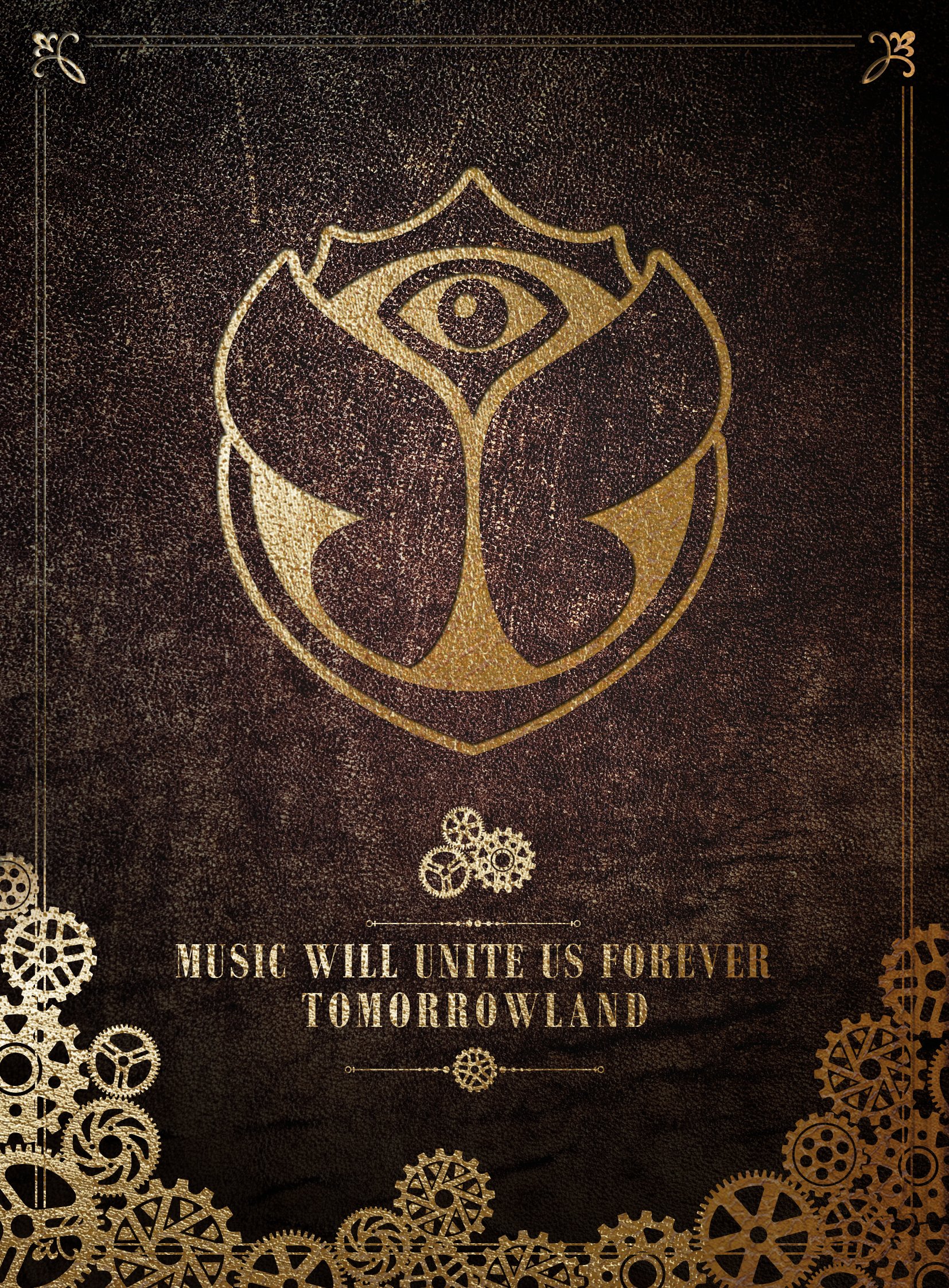
Sunday August 14, 2005 – a magical date in the history of the Kingdom of Belgium, known throughout the ages for its beer, chocolate, waffles, cobblestones, diamonds, poorly named French fries, instant legendary World Cup soccer match against the United States of America, mussels from Ostend and of course muscles from – Jean-Claude Van Damme, everybody! – Brussels.
Out of nowhere, a brand new festival popped up, transforming the town of – if ever there was an appropriate name – Boom into a fairy tale dominion, where enchanting electronic music was to be heard from behind every tree and out of every rabbit hole.
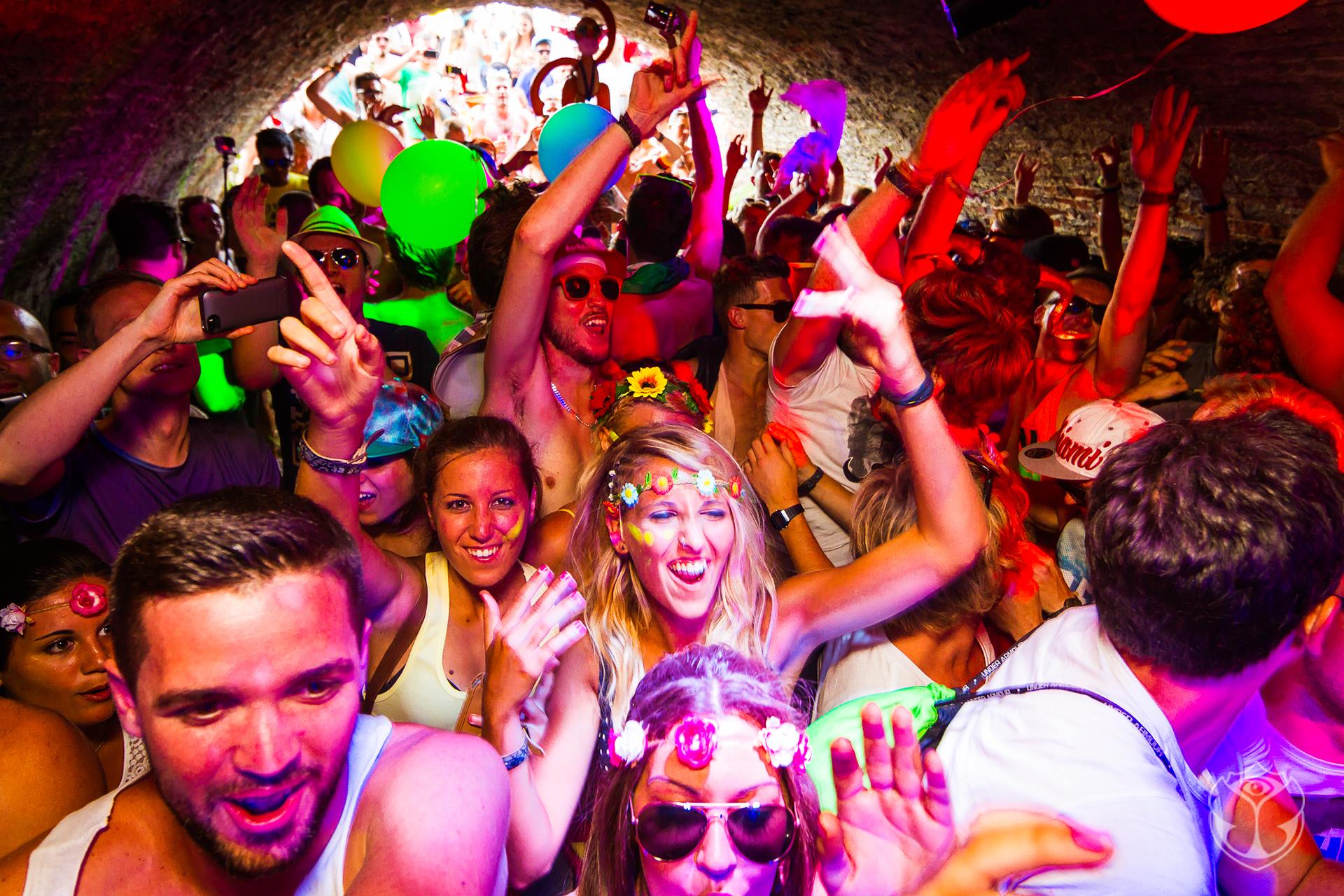
But the festival wasn’t just about tickling people’s ears. From the start, its elves had an incredible eye for detail, an excellent nose for cocktails, a mindblowing sense for entertainment and, overall, incredibly good taste.
Tomorrowland – as the festival was called – turned out to be a grand spectacle, unlike anything that came before it. But this was only the beginning of our fairy tale.
About 10,000 people bore witness to the first edition of Tomorrowland, and to the magic that surrounded it (including DJ sets by Sven Väth, Sasha, Armin van Buuren, Erol Alkan and Justice). And while 10,000 isn’t bad, 15,000 is better – which is precisely the number of treasure hunters that showed up in 2006, when the festival moved to the month of July.
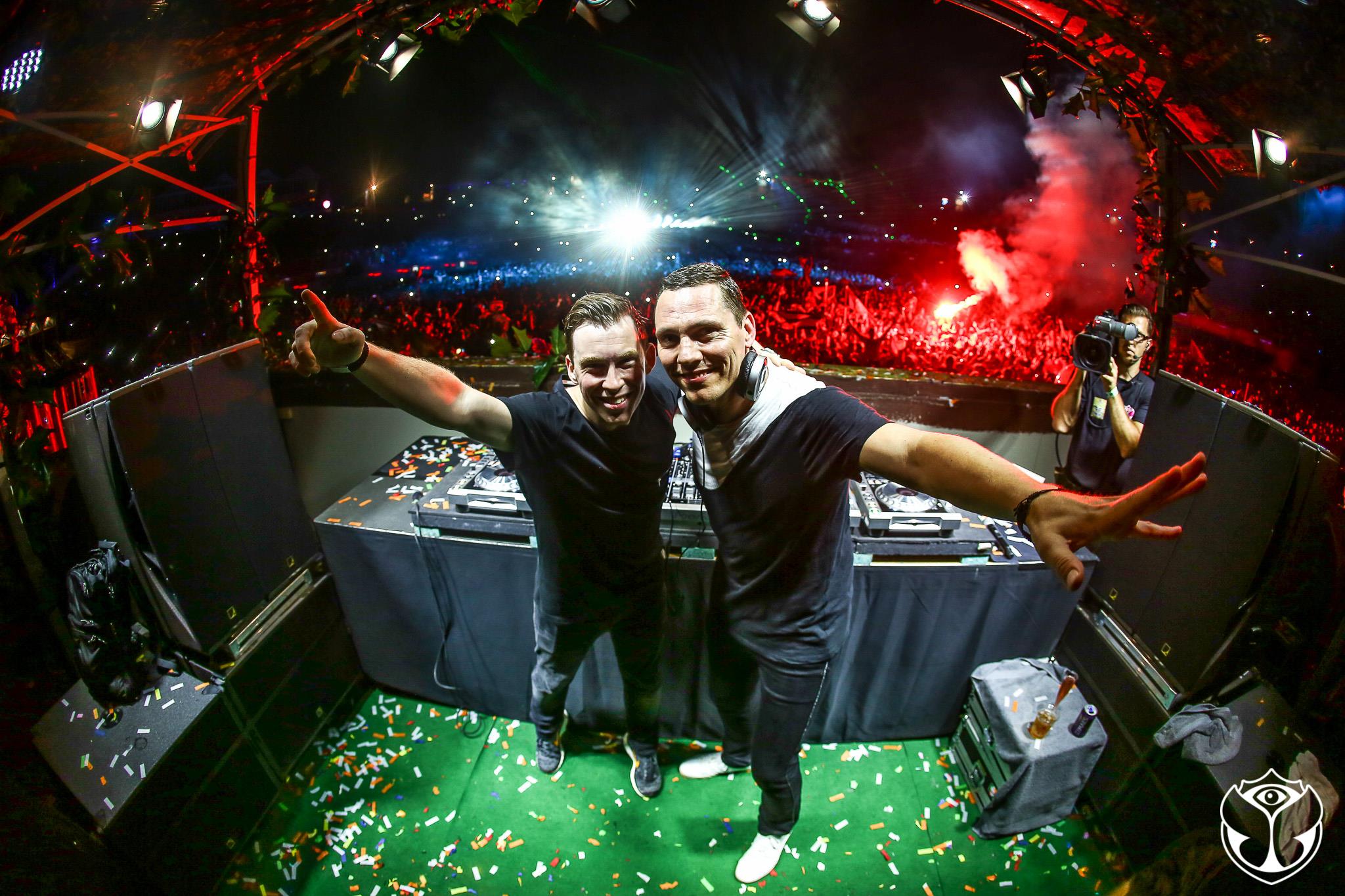
Word-of-mouth was growing stronger throughout the kingdom, and with eight stages and enough extra space to put up three thousand sleeping beauties, the second edition wasn’t only bigger in terms of attendance. Soon enough, word also travelled across the kingdom’s borders, and come the third edition, Belgium was invaded by the Dutch, the French, the Germans and the English – in a quest to find the secrets and unveil the mysteries of Tomorrowland. Of course their efforts proved futile, but they did lift the festival’s attendance figures well over 20,000. Even better news: Tomorrowland now lasts two days and has nine stages.
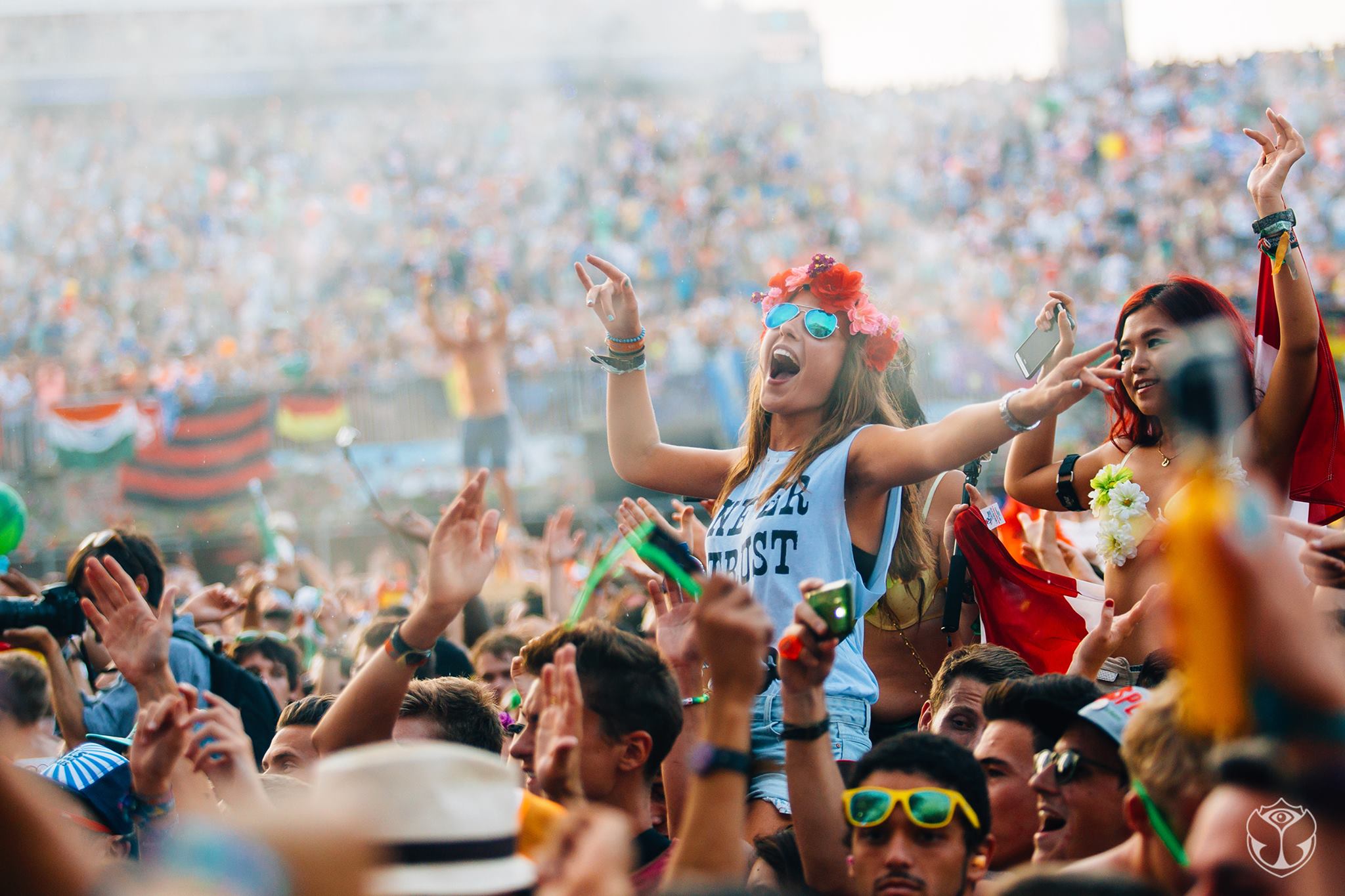
However, the festival’s real breakthrough came in 2008 – the year of the rat, 50,000 people flocked together in Boom for a collective – and quite literal – meltdown, and they also prepared for the festival to be sent up in the sky and have it orbit the globe for decades to come.
One year later, in 2009, Tomorrowland was successfully launched into orbit, when for the first time in its history all tickets are sold-out. Once again, temperatures reached record-breaking levels, while surprise act Moby widened the festival’s profile and appeal.
Belgium’s already rich nightlife scene – including some of the world’s most legendary labels, clubs, parties and artists in the history of electronic music – had finally stepped into to the daylight, and people were watching. Curiously watching. More and more music journalists – even those who traditionally leaned more towards rock and other genres – started to write bigger features on the success of the festival, while at the same time, electronic dance music was vying for world domination.
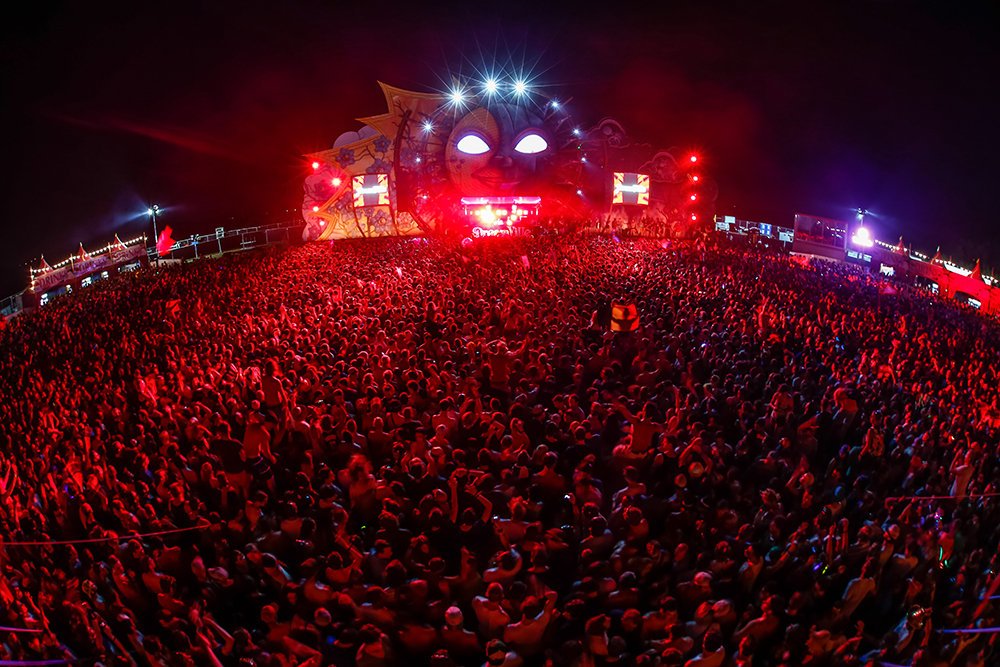
Never content, Tomorrowland continued investing in its lineup, which by 2010 included pretty much every A-list DJ in the world (often playing special sets), its spectacular stages, its truly phenomenal festival grounds and – last but not least – DreamVille, the camping grounds that really make you believe you’re inside a dream. During the sixth edition, 25,000 thousand people spent the night there, with over 90,000 tickets sold. However, the demand was much higher, so in 2011 Tomorrowland added a third day. Not that that made much difference: all 180,000 tickets sold out in less than a day.
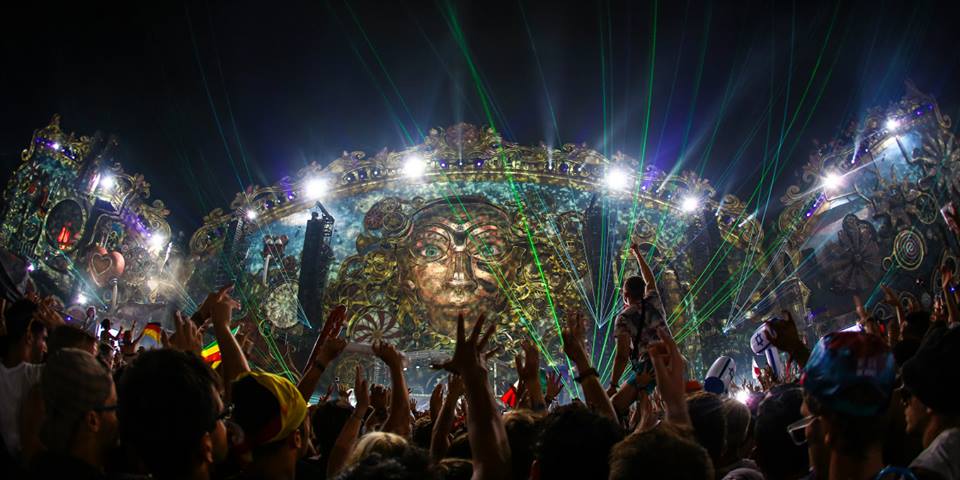
After winning the International Dance Music Award for Best Music Event in Miami for the first time in 2012, Tomorrowland had officially become the most global festival on, well, earth. So much so that the festival decided to organize two separate presales: one for its Belgian fans and one for its international posse.
Think again: a whopping two million people visited the website of the festival, hoping to score a ticket – over ten times more than the number of available tickets. To please everyone who wasn’t able to get tickets, Tomorrowland launches its own YouTube channel in 2012 – broadcasting DJ sets, interviews and behind-the-scenes features.
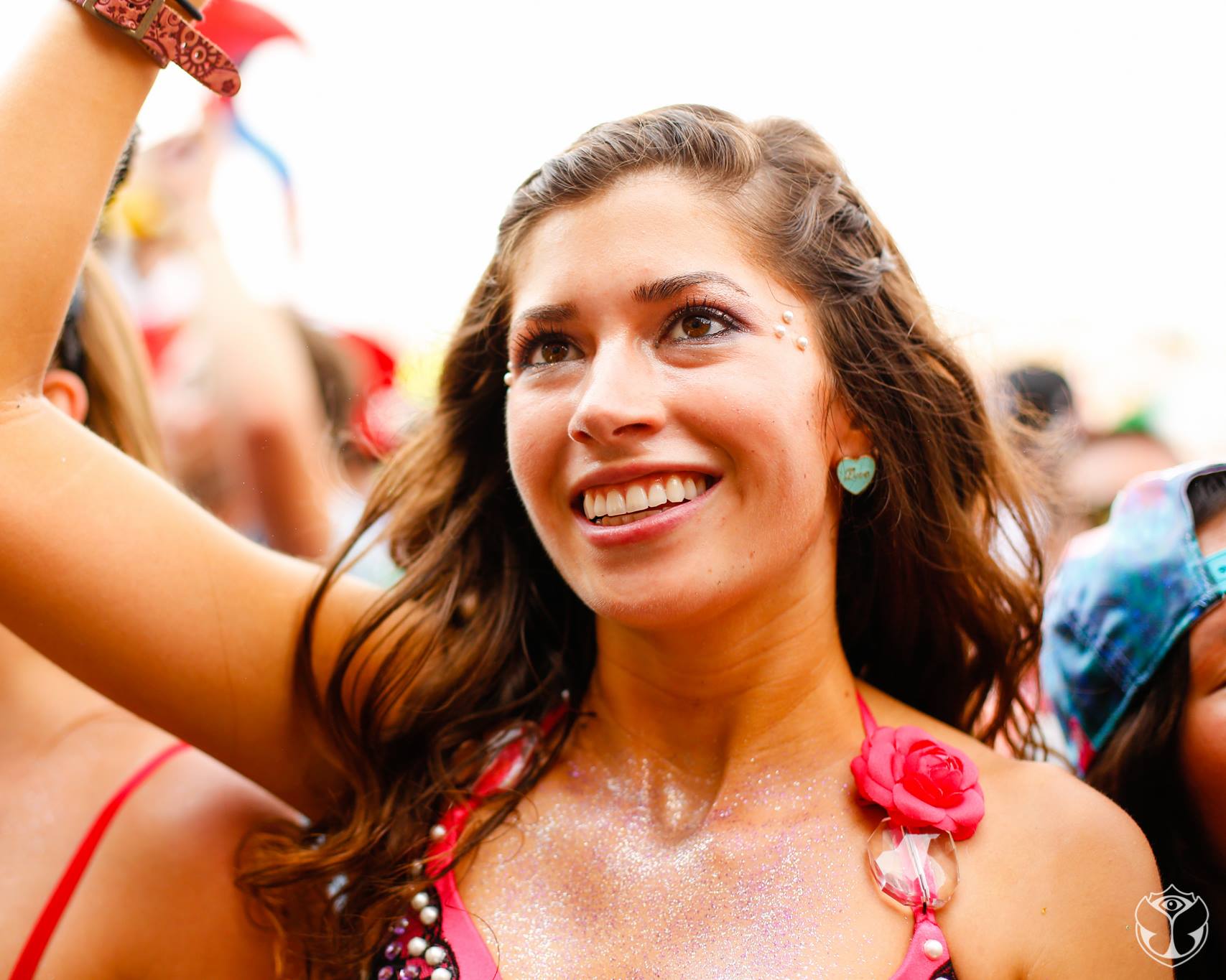
With well over eight million people tuning in, Tomorrowland quickly and easily becomes the most-watched music festival on the planet. Its official after movie adds another one hundred million views (and still counting) to that claim.
One year later, after once again selling all tickets in record time, Tomorrowland launches its own radio station in more than thirty countries.
By 2013, yearly added seventy million euro to the Belgian economy, including nineteen million euro spent by foreign festival visitors on transportation and lodging. In fact, all hotels in Antwerp, Mechelen and Brussels are completely booked during the festival.
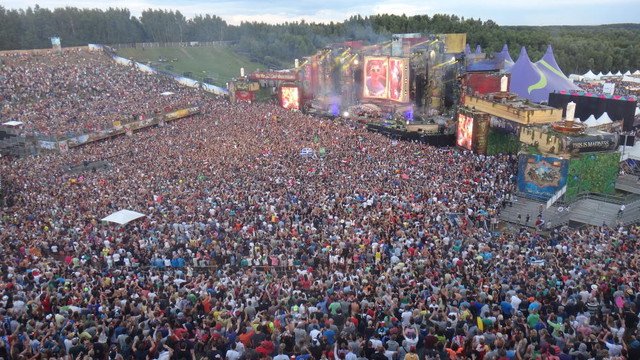
All 360,000 tickets for the tenth edition of Tomorrowland sold out in less than an hour, as did the seats on over 150 Brussels Airlines, Lufthansa, Thai Airways and Air Canada flights into Brussels. Moreover, four Eurostar en two Thalys trains will also bring thousands of people to the festival.
Will this madness ever end? To be brutally honest, not if we can help it.
